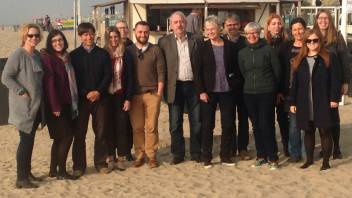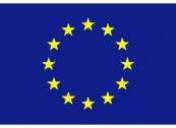 Last week, HelpAge International Affiliates from Spain, Germany, the Netherlands, Ireland, Slovenia, Czech Republic, Sweden, the UK and Denmark met in the Netherlands for an eye-opening workshop on ageing and gender in EU development policy. The event was hosted by our Affiliates in the Netherlands, WorldGranny.
Last week, HelpAge International Affiliates from Spain, Germany, the Netherlands, Ireland, Slovenia, Czech Republic, Sweden, the UK and Denmark met in the Netherlands for an eye-opening workshop on ageing and gender in EU development policy. The event was hosted by our Affiliates in the Netherlands, WorldGranny.
The discussions were rich and challenging and I left with a different perspective on gender and ageing than I arrived with.
A new and broader perspective on gender
Over recent years, the policy discourse on gender in development and humanitarian relief has been focused on women and girls.
“Women” in this sense are understood as women of childbearing age, which is reinforced by the data collected. Surveys on violence against women rarely include women over 49.
One such survey is proposed for use in the Sustainable Development Goals, which is an ongoing point of contention as it undermines the commitment to “leave no one behind”.
The reality is that, gender inequality and discrimination affect women at every stage of their lives and the accumulation of discrimination a woman encounters throughout life will have a profound impact on her experiences and opportunities in later life.
For example, we know very little about the health consequences in later life of female genital mutilation or early pregnancy. Nor do we know in any detail the social or economic consequences for older women of early widowhood as a result of early and forced marriage.
These practices and life events are associated with girls and women of child bearing age because that is the point at which they occur.
We tend to think about development in terms of distinct vulnerable groups – women, girls, older women – without much consideration for how they cross over.
Changing gender expectations for older men
Men are increasingly being included in development programming on gender as key stakeholder to engage with in tackling violence and discrimination against women and girls.
At the workshop we asked ourselves what is unique about gender in older age. The most surprising outcome for me was acknowledging the changing role of men in later life.
Often men’s gender roles also change dramatically as they age, leave the workforce and become physically frail. The result of this abrupt adjustment can leave older men open to the same abuse and violence traditionally associated with women.
A lack of emotional literacy and social networks can exacerbate the issue.
A plea for EU policy coherence
It’s encouraging that the EU is already recognising the impact of age alongside gender in its humanitarian work.
The European Commission’s Humanitarian Aid and Civil Protection department (ECHO) has produced a Gender-Age Marker Toolkit which recognises that women, girls, boys, men, young children, adolescents and older people are affected in different ways by crises and emergencies and have different capacities to prepare and respond.
Having recognised this in its humanitarian response work, the EU must surely apply the same principle to all its external action, whether development cooperation, programming in its neighbourhood regions or its position in the post-2015 intergovernmental negotiations where it can play a vital role in ensuring the SDGs leave no one behind.
A roadmap to change
Over the coming months, HelpAge’s EU network will build on last week’s discussions. We will pool experience from across the region to develop and implement an influencing strategy to ensure that older people’s rights and the unique linkages between gender and older age are central to the EU’s new Gender Action Plan.
The work of the HelpAge EU network is partly funded by the European Union.
The contents of the materials available on this page are the sole responsibility of HelpAge International and can in no way be taken to reflect the views of the European Union.
